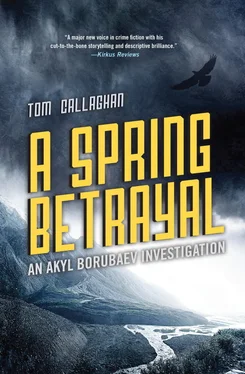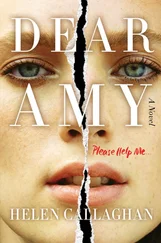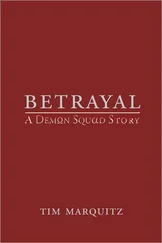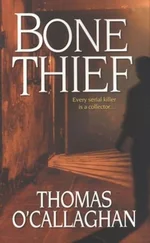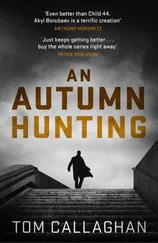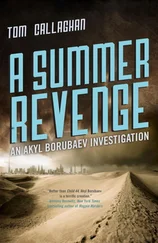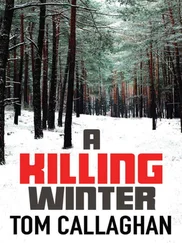“I was thinking maybe twenty-five thousand?”
“Twenty-five thousand som ?”
“No,” I said. “Dollars.”
“ Pashol na khui. ”
“Well, I can certainly fuck off if that’s what you really want, but then you don’t get the smartphone back,” I said, putting a smile into my voice I certainly didn’t feel. “And then who knows whose hands it might fall into? Perhaps I should just hand it in at Sverdlovsky station. The police could probably trace the owner.”
“I’ll call you back,” the Voice said, broke the connection.
Saltanat looked over at me, genuine approval in her eyes.
“A small-time crook gets lucky, decides to try a spot of blackmail. Arranges a meet. Bites a bullet,” she said. “Except he’s not a small-time crook. And he doesn’t.”
I smiled again, the one that never reaches my eyes.
“Devious minds think alike, Saltanat. We’ve put the pot on the stove. Now we let the ingredients simmer. And speaking of which…”
“Yes?”
“I’m hungry.”
An hour later, back at the outside bar of the Umai Hotel, I finished off the last of the pelmeni dumplings a taciturn Rustam had brought us, sipped my chai . Saltanat had refused to eat, had instead worked her way through most of a Baltika beer, staring at me with obvious exasperation.
“Now your belly’s full,” she said, “how about we get back to work?”
I winked, knowing it would irritate her further.
“Wolves aren’t stupid, you know. When they see a sheep tethered, they wonder whether it’s a trap. So they hide up by the rocks or the trees, scenting the air to see if any hunters are nearby. Only when they’re satisfied there’s no danger do they race toward the sheep. Then the hunters open fire.”
“Thank you for the natural history lesson,” Saltanat said. “I understand the metaphor. But that’s not an answer.”
“We know where they are, not who they are. They don’t know who or where we are. So we have the advantage. But they know what we have, the danger it means for them. So they have to reach out to us.”
I tapped the iPhone.
“They’ll call, don’t worry.”
So we sat there as the shadows grew longer, smoked cigarette after cigarette, waiting for the call.
“Ten thousand dollars,” the Voice said, no introduction, no greeting, straight to business.
“No,” I said, and broke the connection, switched off the phone.
“Why did you do that?” Saltanat demanded, anger in her eyes.
“I want to show them we’re greedy, that we’ll be careless when it comes to the meet and exchange. And it puts them on the back foot, which isn’t a bad thing.”
I threw the remains of my cigarette out onto the grass.
“I’ll turn it back on in an hour. And I guarantee it will ring a minute later.”
Which was exactly what happened.
“Twenty-five thousand dollars, very well,” the Voice said. I was pretty sure it was an American voice, confident, no sign of hesitation or anger.
“It’s very expensive to keep me waiting,” I said, injecting a note of annoyance into my voice. “The price is now thirty thousand. Dollars.”
Silence on the other end of the line.
“Who are you? Circle of Brothers?”
I smiled. This was a dance only one person could lead. And if the American thought I might be connected to the organized crime gang spread throughout Russia and Central Asia, so much the better for piling on pressure.
“Call me Manas. The local superhero. Top dog. Bratski krug .”
“Very clever, Mr. Whoever-you-are.” Anger in the Voice now, the first hint of carelessness with an undercurrent of worry.
“I’m turning this mobile off in ten seconds,” I said, “and I won’t be switching it back on if we don’t agree now.”
I could sense the man’s hesitation, almost smell his desire to hit and stamp and kill me.
“Ten, nine, eight…”
“Okay, we have a deal, but where do we meet?” he asked.
“Instructions in an hour, call me,” I told him and switched off the phone again.
“What do we do until then?” Saltanat asked.
I nodded at the hotel.
“I’m sure Rustam has a room to spare,” I said and walked around the bar to where the cold beer was kept.
“Another Baltika?”
She shook her head, lit another cigarette, stared at the empty sky.
Like most Murder Squad detectives, I keep a stash of not strictly legal weapons, “just in case,” as I always tell myself, stuff I don’t want to risk keeping at home. Divide and conquer is a pretty good motto when it comes to illegal weapons. I rent a small storage space near the big bazaar on the other side of Bishkek, not in my name. That’s where I hide two passports, one Uzbek and one Russian, also not in my name, a couple of Makarovs and ammo to go with them, a switchblade, lock picks, several changes of clothing, including bulletproof vests, and other useful items. I think of it as an additional insurance policy, in case we have another revolution and someone decides I’m not cheering fervently enough.
Saltanat kept watch while I taped the two Makarovs and ammo to the underside of the car, having made sure they were loaded. If we found ourselves caught in crossfire, I wanted cover to hide behind and enough firepower to shoot our way out. We both stripped to the waist and strapped on the vests before putting our shirts back on.
“Comfortable?” I asked.
“If you enjoy mammograms,” she said, checking her own Makarov and slamming the clip home.
I slipped the fake passports into the glove compartment, padlocked the storage space, then we were off, back down Chui Prospekt, car headlights already on to combat the dusk, the greater darkness that lay ahead.
I could smell leaves, grass, and the hint of rain in the air. Spring was striding toward Bishkek, the rivers starting to swell with snowmelt. Shepherds would be thinking about moving their flocks back up to the grasslands of the high jailoo , and the city girls would be hunting out their summer dresses packed away months ago. I wondered if I would be alive to see them parade across Ala-Too Square, young, hopeful, an eternal future ahead of them.
“Take a right here, and then a left,” I said, peering out at the familiar streets.
“We’re going to the Kulturny?” Saltanat asked, following my instructions.
“This is my city,” I replied. “I know how it works here. So yes, the Kulturny.”
There was a confidence in my voice I didn’t really feel, but I knew we had to keep moving forward. Losing momentum means losing advantage. And unlike wolves, we didn’t have anywhere to shelter, anywhere to hide.
Right on time, the call came.
“Okay, where?”
“You know the Kulturny?” I said. “The most stylish bar in Bishkek? The French champagne, fine vintage wines, haute cuisine, sophisticated clientele?”
A grunt was the only response.
“When?”
“Forty-five minutes,” I replied. “But don’t be late or they’ll give our table away.”
“How will I know you?” the Voice asked.
“Don’t worry about that,” I said. “I’ll know you.”
I ended the call just as Saltanat pulled into an empty space, across from the bar.
The street was pretty much empty; this part of town doesn’t see much action, once the daylight starts to go. The yellow puddles from the few streetlights we have become stepping stones in a dark and dangerous lake. I could see Lubashov leaning by the steel door, his balls presumably recovered from meeting Saltanat.
I put on one of the midnight-blue wool ski masks I’d taken out of storage, and handed the other to Saltanat. With only eyes and mouth visible, it would be difficult for anyone to identify us, unless we were dead, in which case it was all academic, and Usupov would do the final honors.
Читать дальше
